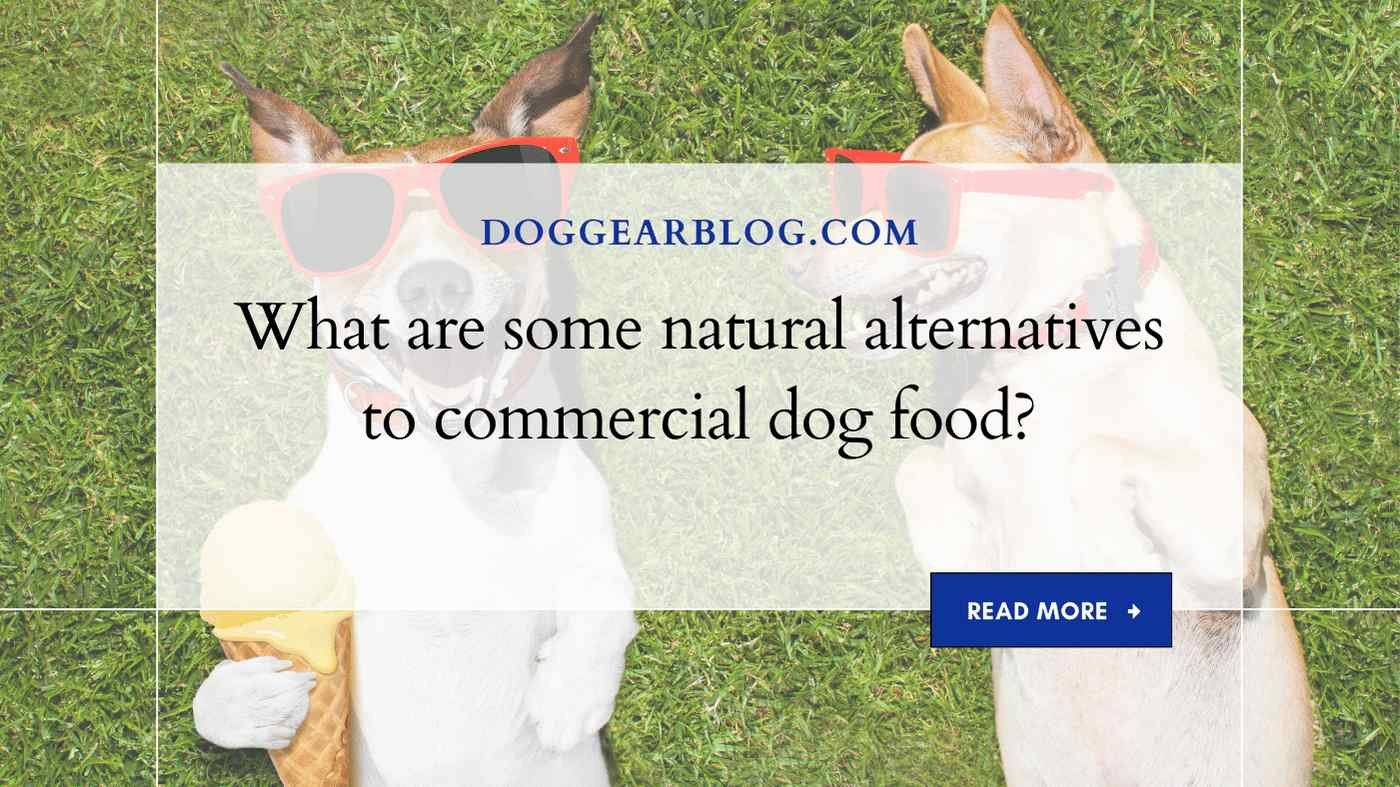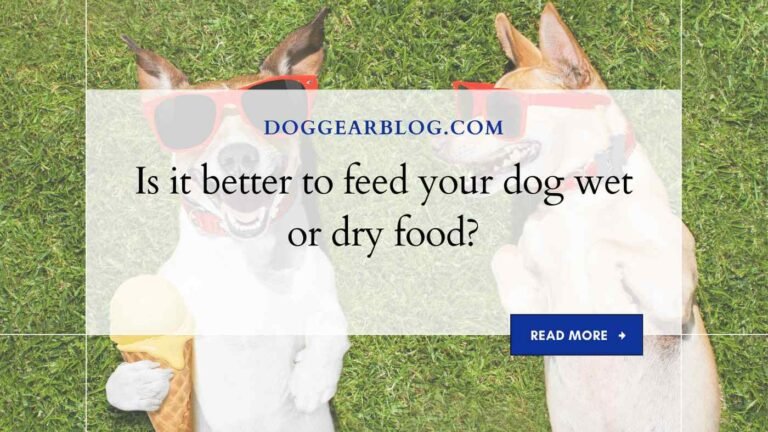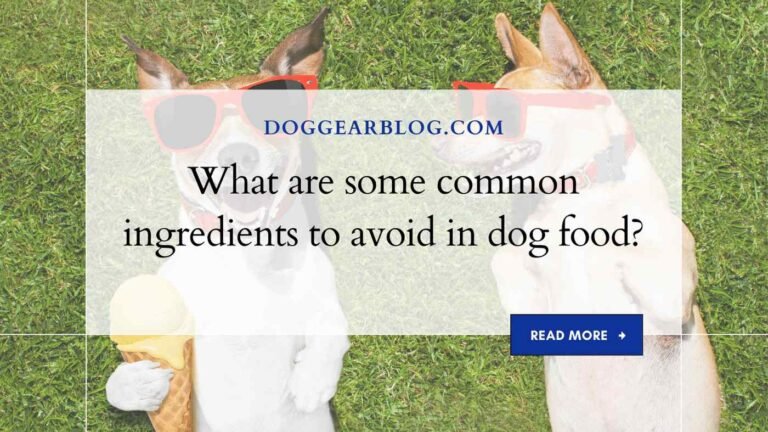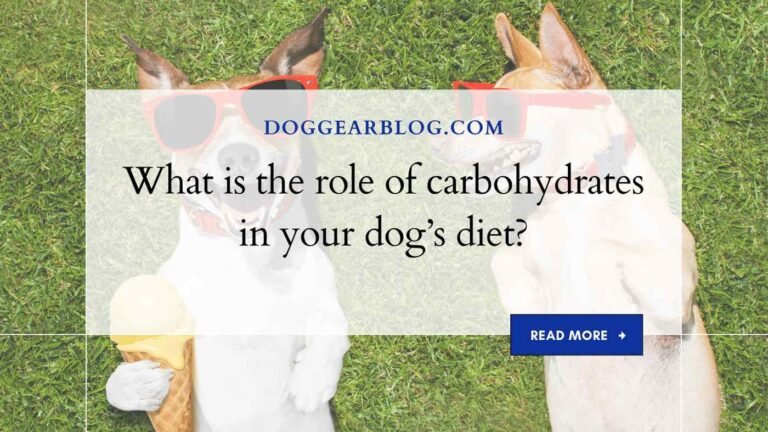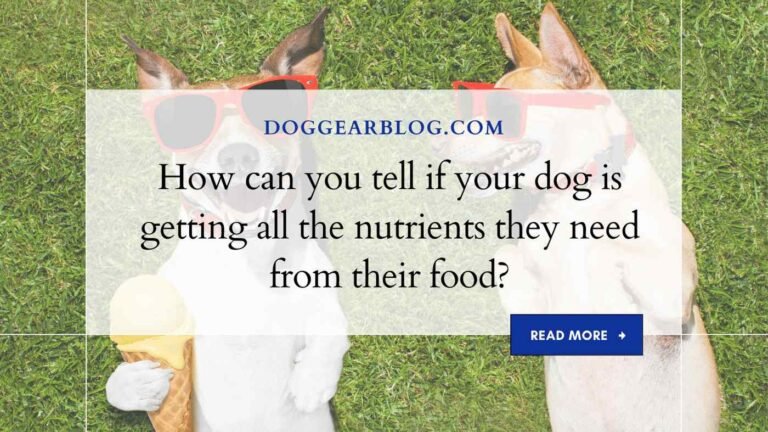What are some natural alternatives to commercial dog food?
Dog owners everywhere know how important it is to feed their furry friends with the best possible nutrition. But with so many commercial dog food options out there, it can be overwhelming trying to navigate the market.
Not only that, but some pet parents are wary of ingredients they may not recognize or trust. Luckily, nature has provided us with plenty of alternatives for our pup’s diets! In this blog post, we’ll explore some natural alternatives to commercial dog food that will keep your canine companion healthy and happy.
What are some natural alternatives to commercial dog food?

Commercial dog food is expensive, and it can be difficult to find a high-quality, natural option that meets both your dog’s dietary needs and your budget. However, there are a number of alternative foods that you can try instead.
One option is to feed your dog homemade food. You can either make your own kibble or prepare a custom diet based on ingredients your dog enjoys (such as lean proteins, fresh fruits and vegetables, and healthy fats). If you have time, you can also add homemade supplements (like probiotics) to the mix to help increase digestive health and support digestion.
Another option is to feed your dog raw meat or raw eggs. These foods are high in nutrients and antioxidants, which are good for overall health and development. Some dogs may have particular dietary restrictions or allergies that prevent them from consuming cooked foods, so feeding them raw foods may be the best solution for them.
If you’re hesitant about feeding your dog raw meat or eggs, there are also plenty of dehydrated options available that offer the same benefits without all the risk of illness. Choices include freeze-dried meats (from brands like Smokehouse), duck liver pâté, pre-made bone broth mixes (like Evergreen Bone Broth), and dehydrated chicken products.
Consider supplementing your pet’s diet with premium quality commercial dog food alternative brands like Orijen or Nature’s Variety if you’re able to afford it. These brands use high-quality ingredients and have been tested for their effect on the health and well-being of dogs. However, you don’t need to spend a fortune to get the best possible care for your dog. There are plenty of affordable, natural alternatives available that will meet your dog’s nutritional needs and keep them healthy and happy.
Types of dog foods
There are many different types of dog foods on the market, and while some are made with natural ingredients, others may not be as healthy for your pet. When looking into alternatives to commercial dog food, try to find foods that are low in meat and high in plant-based proteins.
Here are a few of the best options:
1] Whole grains – A staple in many human diets, whole grains can also be a great option for your dog. Make sure to choose varieties that are low in gluten, which can be troublesome for some dogs.
2] Raw meat -raw meat is a great option for dogs who love meaty snacks. Be sure to provide adequate protein and essential nutrients such as vitamins A and C. Be careful about choosing inappropriate cuts of meat, however – rawhide chews are often high in unhealthy fats and contain chemicals that can be dangerous to your pet.
3] Fermented foods – While not all fermented foods are appropriate for dogs, those that are rich in probiotics (healthy bacteria) can offer a significant benefit. Try feeding your pet yogurt or kimchi vegetables instead of expensive store-bought treats.
4] Organic fruits and vegetables – Produce from organic farms is often free from harmful pesticides, herbicides, and fertilizers, meaning it’s beneficial for both you and your pup! Look for fruits and vegetables that have been peeled or seeded yourself so there is little chance of allergens being present.
Pros and Cons of different types of dog foods

There are many different types of dog foods on the market, and it can be tough to decide which is best for your pet. Some people swear by organic food, while others say that all commercially produced dog foods are just as good. In this article, we’re going to take a look at the pros and cons of different types of dog foods to help you make an informed decision.
Organic dog food
One of the most popular choices for people who care about their pets’ diets is organic dog food. Organic farming practices exclude the use of synthetic pesticides, herbicides, and other chemical additives. This means that organically grown crops are more likely to contain nutrients essential to dogs’ health, like protein and vitamins.
However, there is no guarantee that all organic products are high quality enough for your pooch – some may actually be less nutritious than supermarket brands. It’s important to do your research before making a purchase – some reputable sources of organic dog food include The Honest Kitchen and Nulo.
ISO-certified meat products
Another option is ISO-certified meat products – these are meat products that have been checked for contamination by an accredited body. By choosing an ISO-certified product, you can be sure that the meat used in your pup’s meals has not been contaminated with bacteria or other contaminants.
This is important if you have a dog with allergies or sensitivities to certain ingredients – chances are good that the meat used in your pet’s food has not been contaminated with any of these things. While this doesn’t mean that all ISO-certified products are high quality, it does make it more likely that the food you feed your dog is safe.
Shop around to find an ISO-certified product that fits your pup’s dietary needs – some brands include Wellness Professional, Evo Feed and Orijen.
Commercial dog foods
Another option is commercially produced dog foods. These foods are typically less expensive than organic foods, and they may also be more convenient for you. Many commercially produced foods contain ingredients that many dogs find irresistible – like chicken or salmon – which can be problematic if your pet has allergies or other food sensitivities.
It’s important to read the labels carefully before making a purchase – some commercial brands have been known to contain unhealthy fats and additives that can be harmful to dogs. It’s also important to make sure that the food you buy is appropriate for your pup’s size and age – most commercial foods are designed for adult dogs. If you have a young pup or an older dog, consider feeding them specially made diets instead.
Goals of feeding your dog with natural alternatives
When it comes to feeding your dog with natural alternatives, you have a few options. Some people opt for homemade food while others use pet wolf or cayenne pepper to stimulate their dogs’ appetites. You can also buy premade raw diets and supplement them with fresh meats and vegetables.
There are a number of reasons why you might want to feed your dog a natural diet. Some people believe that this type of food is healthier for their dog, as it does not contain processed ingredients or GMOs. Others believe that feeding their dog a natural diet will help to train them better because they’ll be training their own palate. Many people simply prefer the taste of natural foods over those that have been processed.
Types of Alternative Dog Foods
Alternative dog foods come in many flavors and comities, some of which are listed below.
1) Canned Dog Food: This is the most popular type of alternative food for dogs. It comes in many flavors and can be a good source of nutrients, including protein and vitamins. However, canned dog food is often high in sugar and salt, which can lead to health problems over time.
2) Homemade Dog Food: This is the easiest type of alternative food to make and provides your dog with all the nutrients it needs. The only downside is that it may not be as nutritionally balanced as commercial dog foods.
3) Meat Substitutes: Meat substitutes are a good option if you want to feed your dog meat but don’t want to eat meat yourself. There are many different options available, including beef liver, turkey breast, beef heart, chicken thighs, etc. Some caveats when feeding these types of substitutes include that they are not always nutrient-rich and they may contain allergens such as wheat or soybeans.
4) Vegetarian/Kibble Alternatives: These diets consist of plant-based proteins and whole grains instead of meat. They provide all the nutrients your dog needs but may lack some tastes and textures your dog enjoys from traditional kibble formulas. Some vegetarian kibble formulations also include probiotics to aid in gut health.
5) Vegan/Vegetarian-Based Dog Foods: These diets exclude any form of animal -based protein and are made entirely of plant-based ingredients. They can be a good option for dogs with food allergies or sensitivities, as they typically lack the allergen potential of meat-based diets.
Which Alternative Dog Food is Best for Your Pet?
If you’re fed up with commercial dog food, there are several natural alternatives to consider. These foods may not be as nutritionally dense or complete as commercially produced foods, but they offer other benefits such as being fresher and more nutritious.
There are a number of different types of natural dog foods available. Some options include raw diets, ground meats, fresh fruits and vegetables, home made meals, and wet kibble. Some dogs will do better on one type of alternative food over another, so it’s important to consult with your veterinarian before making any changes to your dog’s diet.
Conclusion
Commercial dog food can be expensive and full of artificial ingredients that your pet may not as well tolerate. In this article, we have listed some natural alternatives to commercial dog food that you may want to consider if you are looking for something more nutritious and suited to your pet’s needs. By reading through these articles, you will hopefully be better equipped to make an informed decision about what is best for your four-legged friend.
